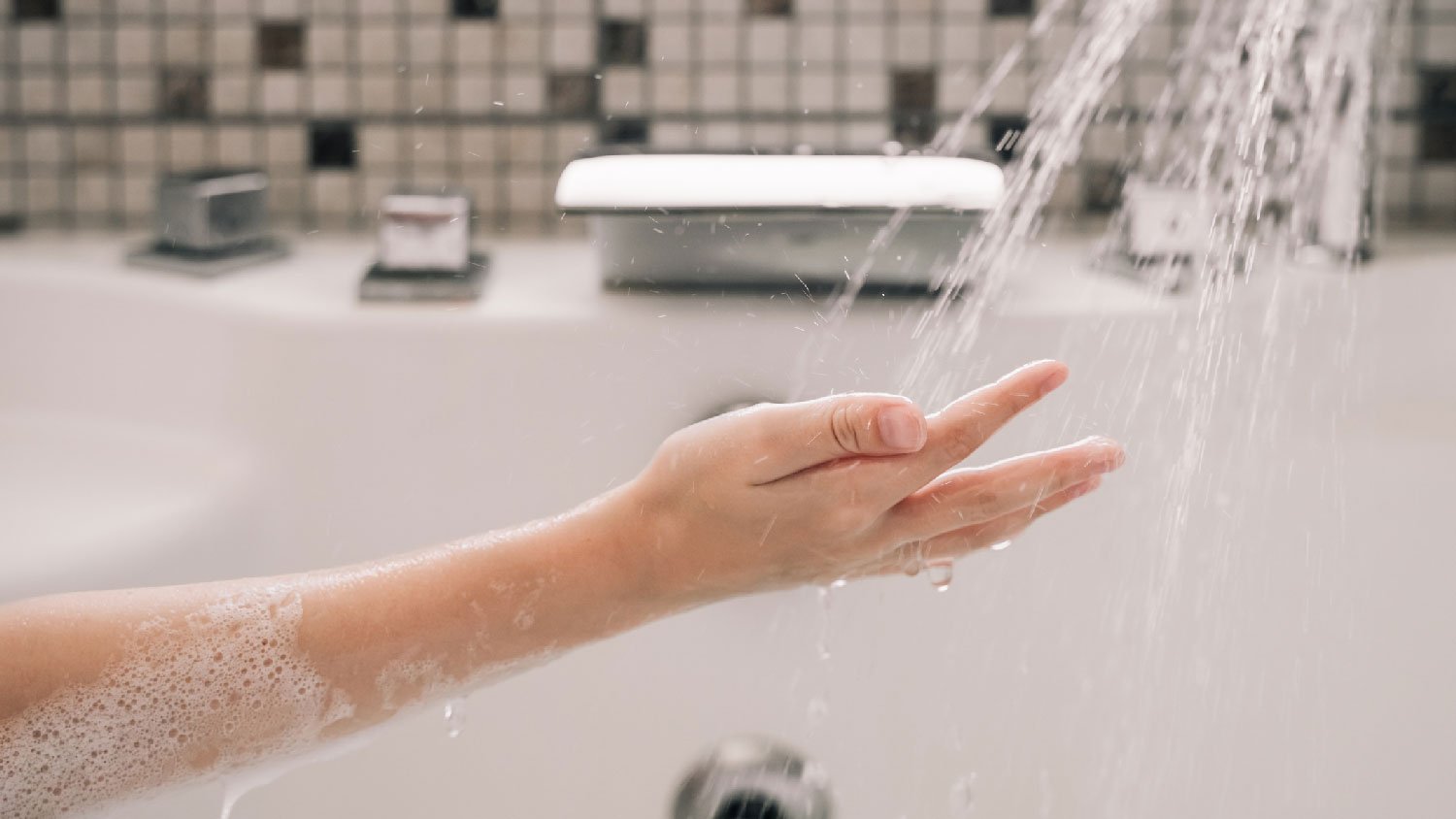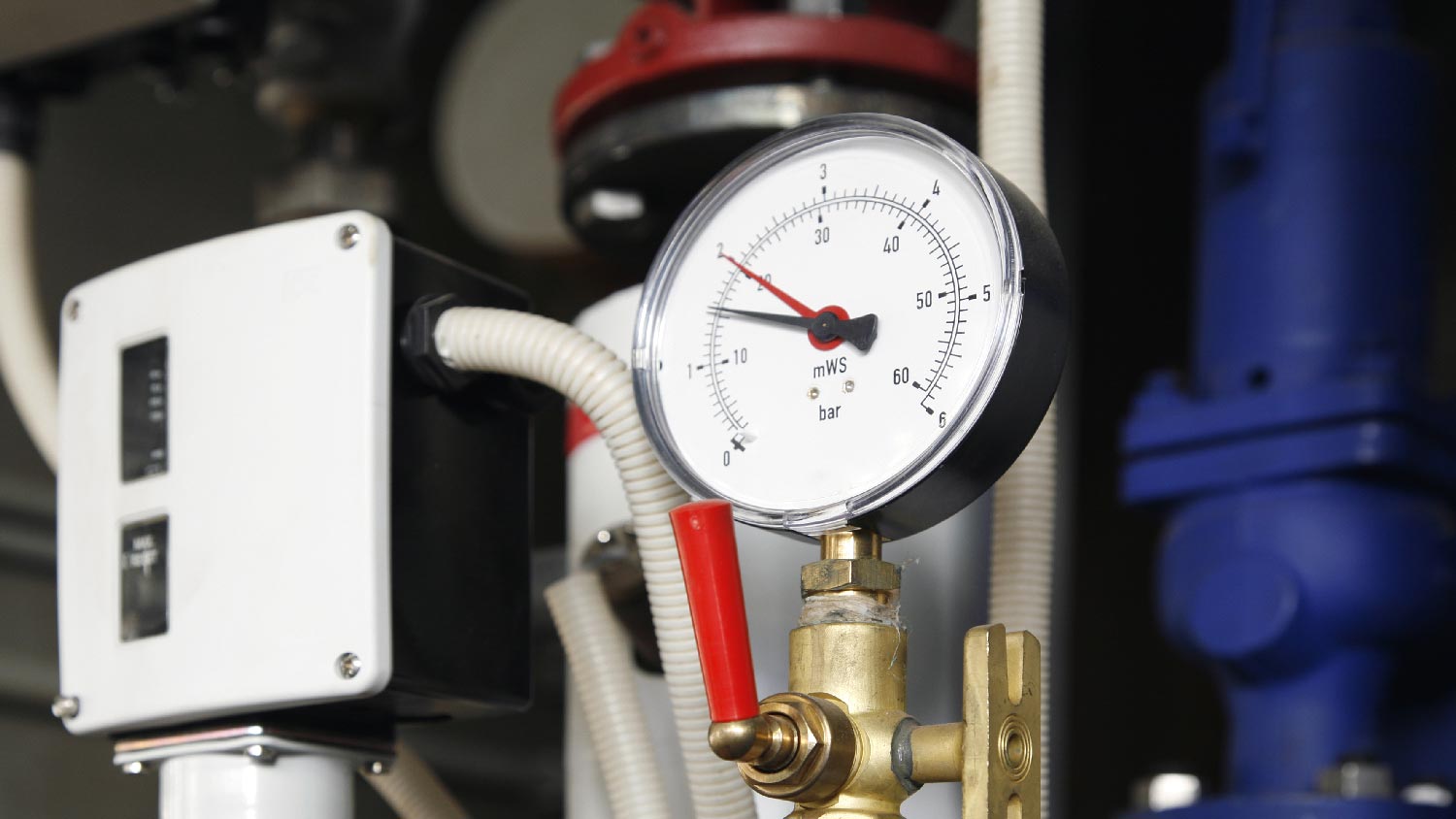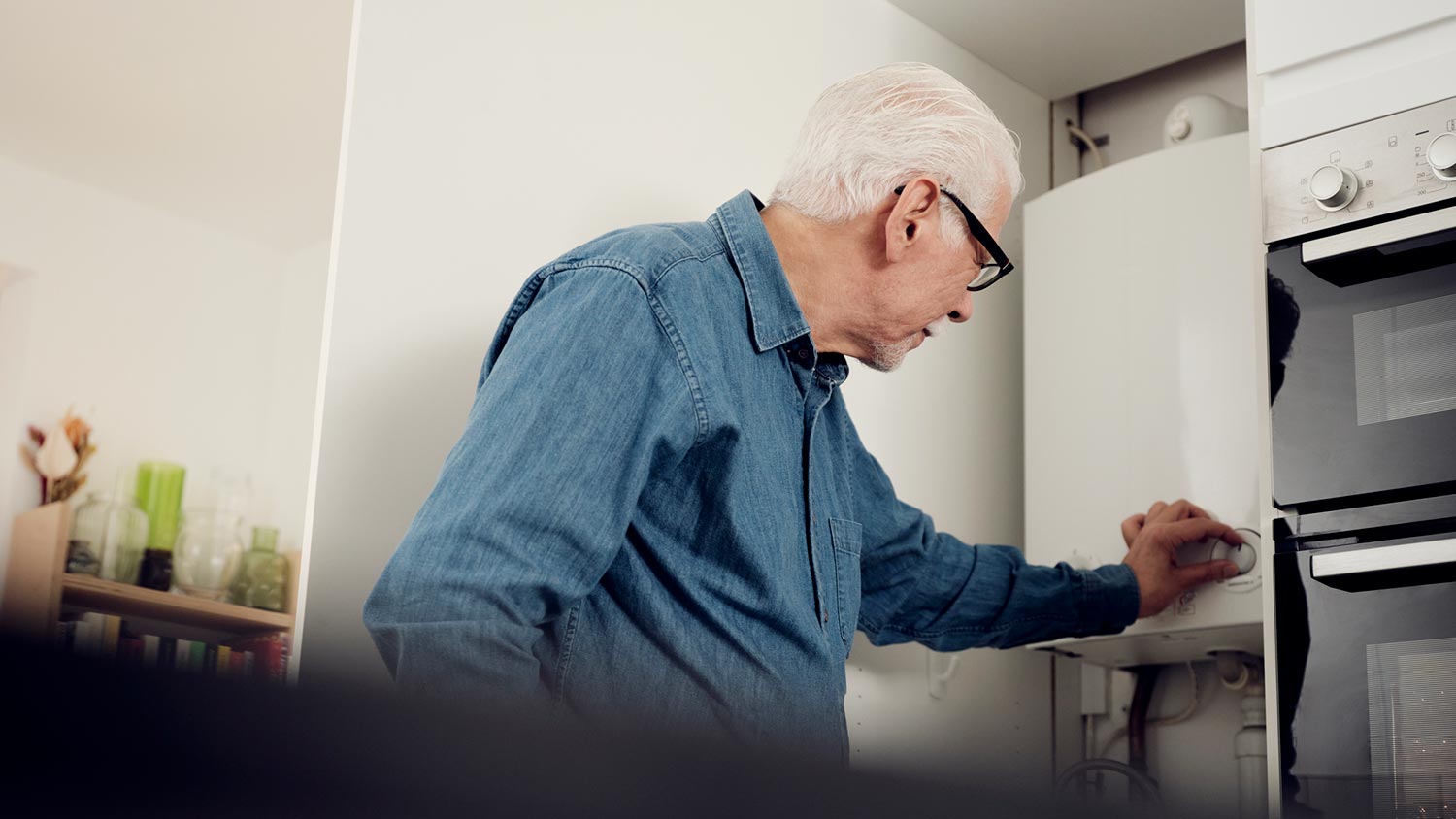What Is a Hot Water Heater Recirculation System?
Hot water, no waiting


A hot water heater recirculation system delivers hot water to fixtures instantly, without waiting or sacrificing efficiency.
These types of systems cost between $200 and $400.
Some systems require additional plumbing while other types can be integrated with the home's current plumbing.
Few things are more frustrating than turning on a faucet or shower and waiting for the water to heat up. A hot water heater recirculation system eliminates these tedious wait times so you can access hot water instantly. But how do these systems work? Learn everything about recirculation systems and how they can make your hot water heater more efficient.
What Is a Hot Water Heater Recirculation System and Why Is It Used?
A hot water heater recirculation system circulates hot water through the pipes, delivering instant hot water to faucets and fixtures. Without this type of system, water that's in the pipes cools down, leading to delays and wasted water while waiting for it to heat up.
These systems help improve convenience and reduce water waste, especially in large homes where the water heater is not heating fast enough. Homeowners use recirculation systems to avoid waiting for hot water and to help lower water bills. They’re beneficial in homes with high hot water demand, like households with multiple bathrooms.
How Does a Hot Water Heater Recirculation System Work?
A hot water heater recirculation system circulates hot water, either continuously or on demand, through the pipes. The process prevents the water from cooling down while it's sitting unused. The system's pump moves hot water from the heater through the plumbing and back through a dedicated return line or existing cold water lines.
Some systems run continuously, while more energy-efficient models use timers or thermostats to activate the pump as needed. This allows you to enjoy near-instant hot water at faucets and showers while reducing water waste and improving convenience.
Types of Hot Water Heater Recirculation Systems

Homeowners have a few different options for types of water heater recirculation systems. Some can be costly or challenging to install while others easily integrate into the home's existing plumbing.
Dedicated Return Line System
A dedicated return line system uses a separate pipe to return unused hot water back to the water heater. This setup creates a continuous loop so hot water is always available at fixtures without needing to wait for it to travel from the heater. The system includes a pump that moves the water through the loop. Since it requires an extra return line, this type of system is best suited for new construction or homes undergoing major plumbing renovations.
On-Demand System
An on-demand hot water recirculation system only activates when hot water is needed, rather than continuously circulating it. Unlike dedicated return line systems, these systems use a pump that moves water from the water heater to the fixture when triggered by a button, motion sensor, or smart home integration.
Instead of keeping water hot at all times, the pump quickly moves cooled water from the pipes back to the heater and brings hot water to the fixture, significantly reducing the waiting time and boosting efficiency. Installation is relatively easy because it can use existing plumbing.
Demand-Controlled System
A demand-controlled recirculation system is similar to an on-demand system but is more automated, responding to real-time hot water demand. It includes a pump that activates when sensors detect a drop in water temperature or when someone turns on a fixture, instantly moving hot water to where it’s needed. Instead of running continuously, these systems only operate when necessary, which helps conserve energy while still delivering hot water quickly.
Because it only runs when hot water is required, it minimizes energy loss and reduces strain on
the water heater. These systems can be installed in new or existing homes, using either a dedicated return line or existing plumbing.
Cost of a Hot Water Heater Recirculation System
On average, a hot water heater recirculation system costs between $200 and $400. You can hire a local water heater repair technician to help you with how to install a recirculating pump on your water heater. They can also help you decide which system is best suited for your home and help you factor in any water heater plumbing repair costs.
Frequently Asked Questions
If you want instant hot water and to reduce water waste while improving convenience, a hot water recirculating system is worth it, especially if you find your hot water heater is not hot enough. These systems can save thousands of gallons of water each year so you don't have to wait for hot water at faucets and showers. The upfront investment can be high, especially for systems requiring additional plumbing, but the long-term savings on water bills and added comfort make them a worthwhile upgrade.
A well-maintained hot water recirculating pump can last 5 to 15 years. Pumps that run continuously may have a shorter lifespan than demand-controlled models. Hard water can reduce longevity by causing mineral buildup in the pump and pipes. Regular maintenance, such as cleaning or replacing filters, can extend the pump’s lifespan.















